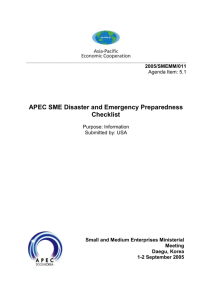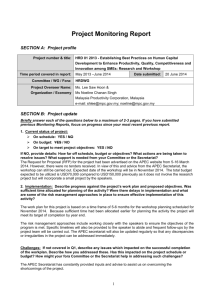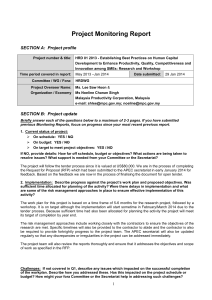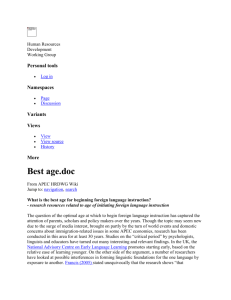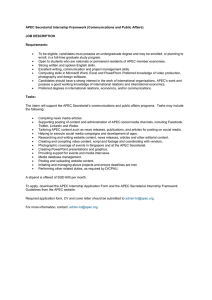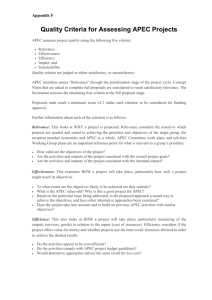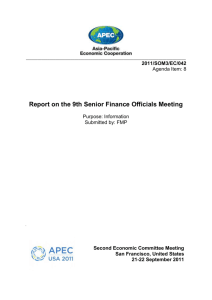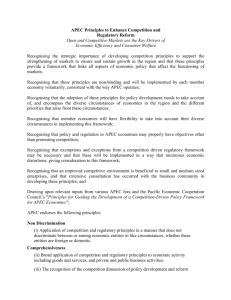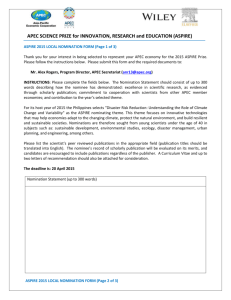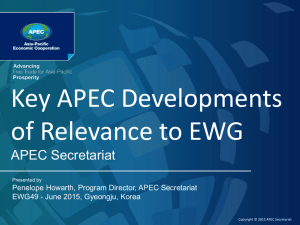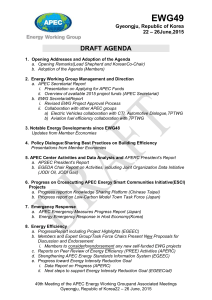TASKFORCE FOR EMERGENCY PREPAREDNESS: REVIEW OF
advertisement
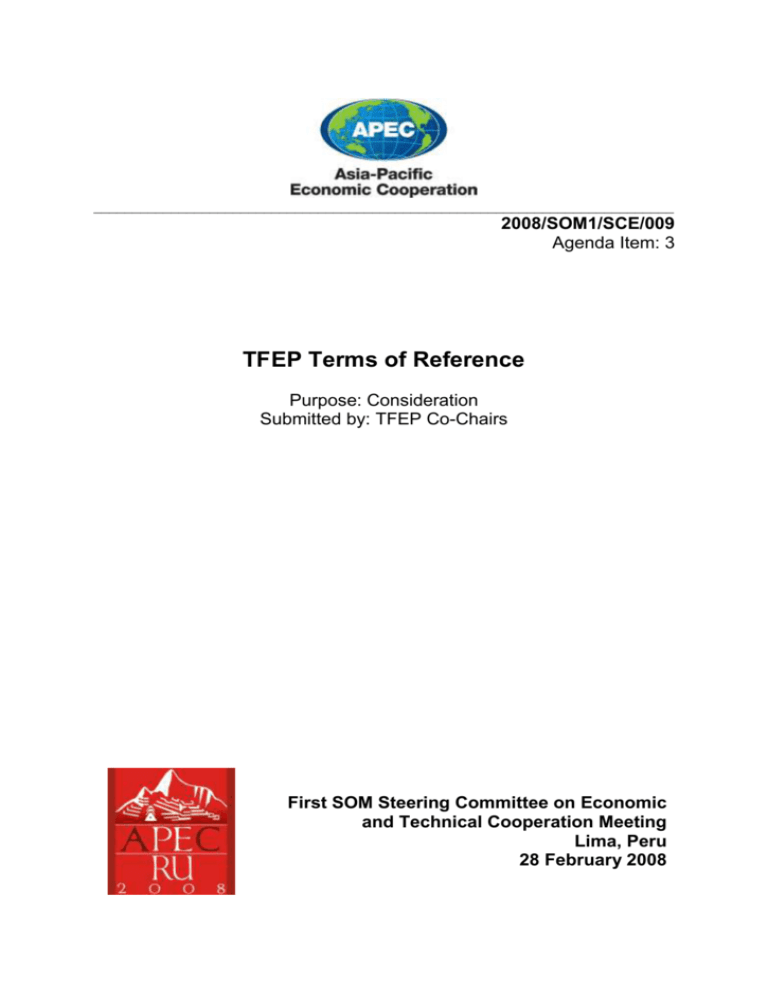
___________________________________________________________________________ 2008/SOM1/SCE/009 Agenda Item: 3 TFEP Terms of Reference Purpose: Consideration Submitted by: TFEP Co-Chairs First SOM Steering Committee on Economic and Technical Cooperation Meeting Lima, Peru 28 February 2008 TERMS OF REFERENCE for Task Force for Emergency Preparedness (TFEP): 2008-2009 (Approved at SOM I 2008 in Lima, Peru) Introduction Following the Indian Ocean Tsunami in late 2004, APEC Senior Officials responded to a call by the SOM Chair to examine ways to establish a more effective mechanism to coordinate/facilitate emergency and natural disaster preparedness and response within APEC. APEC can play a constructive role in enabling the region to better prepare for future disasters of all kinds and address long-term commercial recovery in affected sectors. Senior Officials are cognizant of areas in which APEC can add value as well as APEC’s resource limitations. Therefore, Senior Officials agreed that APEC’s efforts should complement, not duplicate, other international efforts and should be sustainable. Goals and Objectives To improve coordination and enhance intra-APEC cooperation and integration of best practice emergency and natural disaster preparedness and response efforts in APEC. To build capacity in the region to mitigate, prepare for and respond appropriately to emergencies and natural disasters. Current Priorities and Projected Outputs The TFEP’s current priorities and projected outputs will be outlined in its annual Workplan, which will be reported to Senior Officials through the SCE Fora Report. The activities and deliverables of the TFEP will be included in the SCE Fora Report. Membership All APEC economies, through designated focal points. Chairs and Lead Shepherds of relevant APEC fora. Internal organization arrangements TFEP reports directly to the SOM. Chair (s) to be appointed by Senior Officials. TFEP will be assisted by the APEC Secretariat Ad Hoc Working Group to be established if/as needed. Meeting arrangements The work of the TFEP will, wherever possible, be carried out via electronic communications Face-to-face meetings will be based on needs/emergencies, or when issues cannot be resolved via electronic communications. Such meetings should be held on an ad hoc or needsonly basis. Communications and administrative arrangements Official TFEP e-mail contact list based on focal point details provided by SOMs. All communications relating to the TFEP will be carried out via email from Chair to members. Use of existing website for information exchange and networking. Modalities for cooperation TFEP will coordinate the work of APEC on emergency and natural disaster preparedness and response, refer endorsed projects to relevant sub-fora for action or endorse appropriate selffunded projects, undertake work as necessary and facilitate the sharing of information among member countries. The TFEP will identify ways APEC can complement the efforts of other organizations to prevent/mitigate the economic impact on the region of emergencies and natural disasters occurring in member economies as well as non-member economies in cases where those emergencies and disasters are anticipated to have a significant impact on the region. The TFEP will not engage in emergency and natural disaster relief activities. The TFEP will encourage members to take all hazards approach in developing emergency preparedness mechanisms. The TFEP will encourage cooperation between senior emergency and disaster management officials, business and regional and international partners. TFEP will encourage public-private partnerships in emergency preparedness. Sunset Clause Towards the end of its mandate the TFEP will review its achievements and outputs and invite SOM to consider its future.
